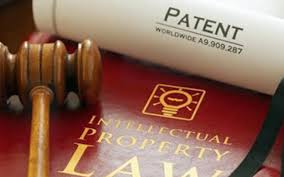First case seeking grant of compulsory license for patent
Patentee invented the drug SORAFENIB for advanced treatment of liver and kidney cancer introduced under trade name NEXAVAR. It is for an Indian generic manufacturer with a cost of Rs.2.8 lakh per month. The first case seeking of your patent license has been explained in the below paragraphs.The applicant requested patentee for a voluntary license to manufacture and sell the drug at the price of Rs.8800 per month.
The mandatory patent license application field needs a balance rights and obligations of a Patentee Trips agreement under article 30 and 31. It allows member countries to approve terms for conditions for permission of compulsory license to stop the abuse of patent right.
The mandatory license has been in fact since 1830’s and was later acknowledge through the Paris convention of 1883 held. It approved in present case and power settled to be paid to the patentee as 6% of the net sales of the drug license. The registration is mandatory to get your license.
The pricing of drug covered by the patent sold by license was not exceed at Rs.8880 for a pact of 120 tablets for a treatment of one month. The reasonable needs of the public under section 84 with the applicant claims patentee has not taken suitable steps to manufacture the product in India to create complete use of the invention.

First case seeking for patent
Under section 84, the reasonable needs of the public where they claim patentee has not taken valid steps to manufacture the product in India to create complete use of invention. The patentee registered patent application in 2000 in India, but they introduced in 2009. Patentee does not manufacture this drug in India and also, he does not manufacture other products.
Normally, public cannot provide the drug. The patentee claimed other treatments also available to the patients and they claim drug is available where it is needed with specialist cancer hospital and doctors. Patentee claims the considered stipulations under section 84(7) deal with reasonable needs of public have satisfied on it.
Patentee request innovation-based products cost a price over generics and they argued the sale by Cipla for Rs.30,000. The patent drug was not bought by the public, because the cost is too high for them. A compulsory patent license provided to the applicant under section 84.
Under section 84, patent invention is not worked in India. The products are not imported in India. Patentee request a try to impose local working needs like local manufacturing would be beyond the scope of the patent act.
Where quantities are need in India do not economically justify setting a manufacturing facility. The Paris convention and Trips agreement and Patent act 1970 together do not in anything involve which working means importation. The compulsory license is sued to the applicant under section 84.
Scope and Effect
Under section 100 scope and effect of application for grant of temporary injunctions. Patents can be managed by state and central government for the reasons other than discharge of duties or the sovereign functions. The above conditions show that the said terminology “surely of its own”. It has been utilized with the exact purpose and it cannot be said that the words in sections 47, 99 and 100 in the parliament.
In may opinion, all these words “surely of its own” mean use for the conditions of the government. It is used by various patent agents of the government in performance of their duties. But this would not contain any other person like contractor of railways and this is strictly restricted to the government department or its servants.
For such use observed by section 47 of the act, there is no payment of royalty is at all noticed to the patentee. In “eminent domain” parliament or government is observed to make a patent registration and their subject to such provisions are to be found in section 47 of the act.
In a similar way at section 35 to 42 included in chapter 7 of the act will declare that for the defence and security of India all rights of the patentees have been reduced as the same is a sovereign function.
No patentee can request a right on a high support than the government executing sovereign function.
Under the conditions even a third party like contractor respondent No.1 can be assigned to use the patient for the purposes of government undertakings. It is clear to me that both state and central government are not authorized to use a patent free of cost.
Perusal of section 100 of the act to my mind obviously shows that it observes a separate, direct and clear jurisdiction that too in writing from the central government. The government shows its departments. Whole agreements are signed by the central railway or its officer on behalf of president of India. It is for the specific contract between the authorities and parties who can know about the patent and their license.
The authority can be provided by its department or the central government under the section 100 of the act. Since the government would be need to look into the other needs of section 100 of the act which have proper registration from the patentee. Such authorization in writing cannot be said to be a mechanical act.
Solubilis is the leading IPR consultants who can help to register your patent in Chennai and all other major cities. We have experienced patent attorneys they can guide you the entire registration process of patent.